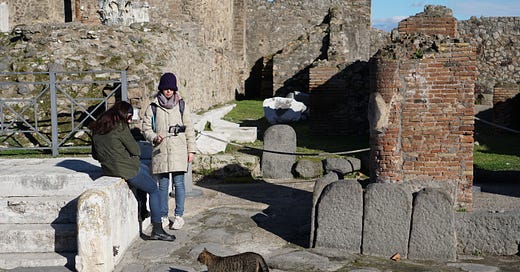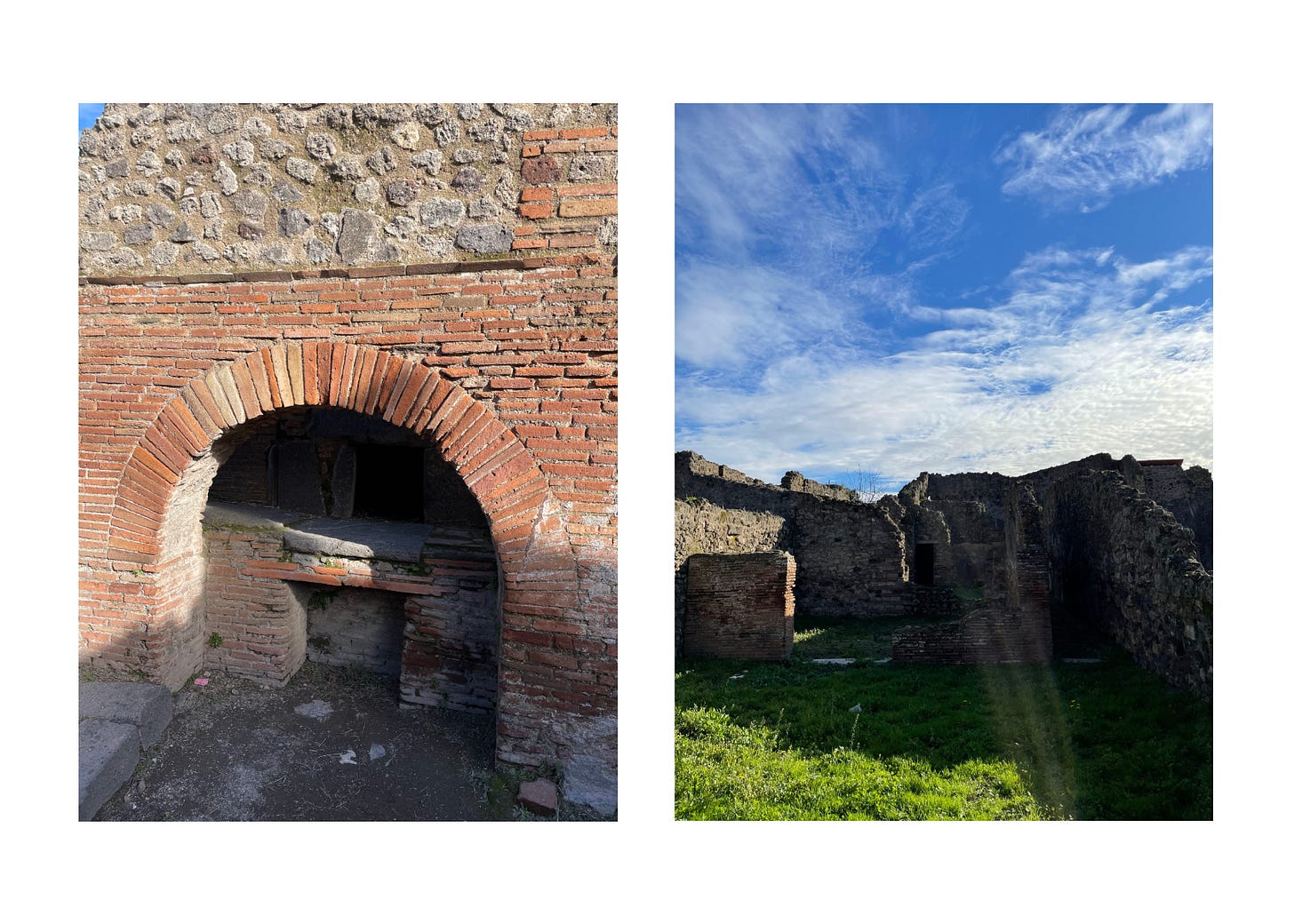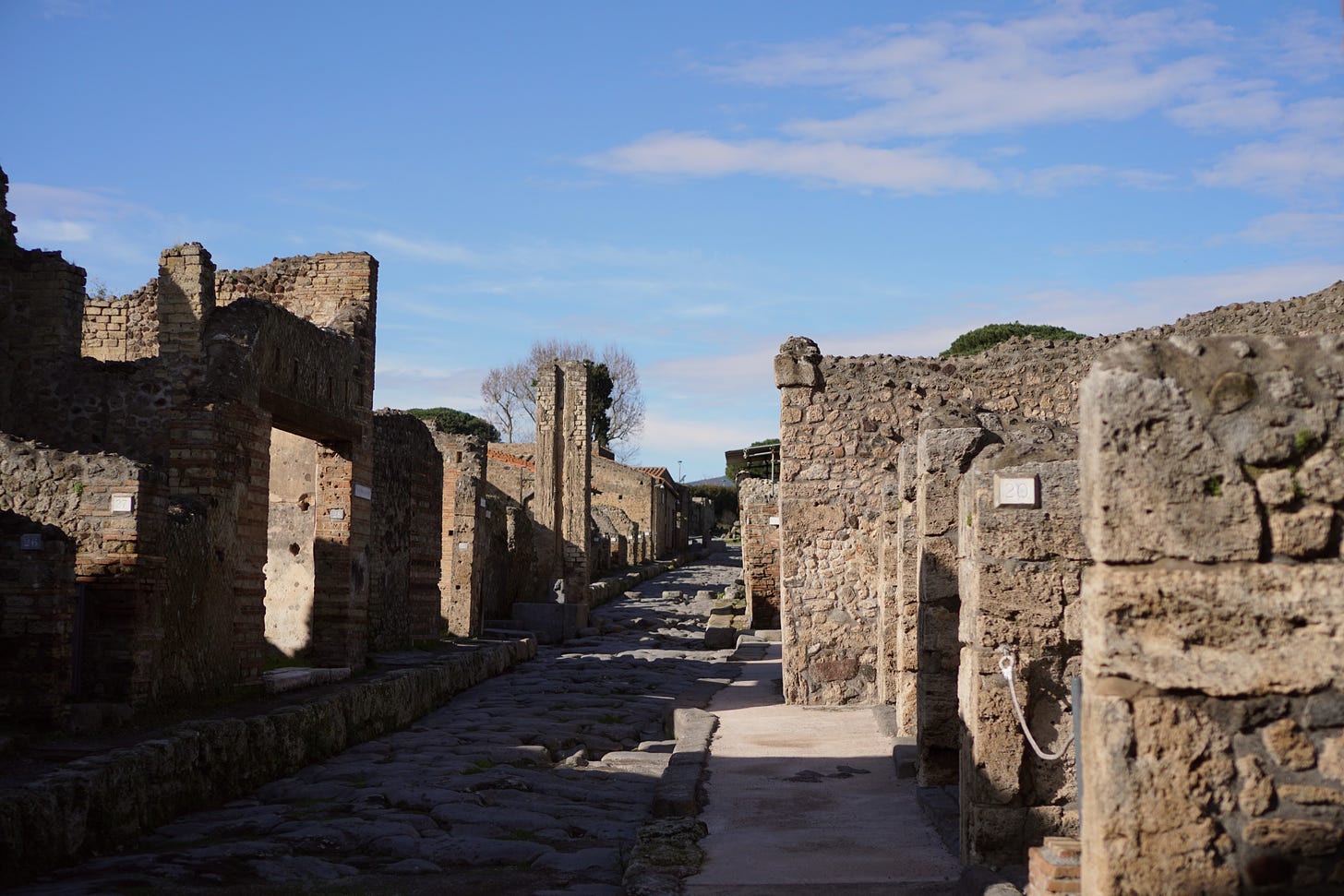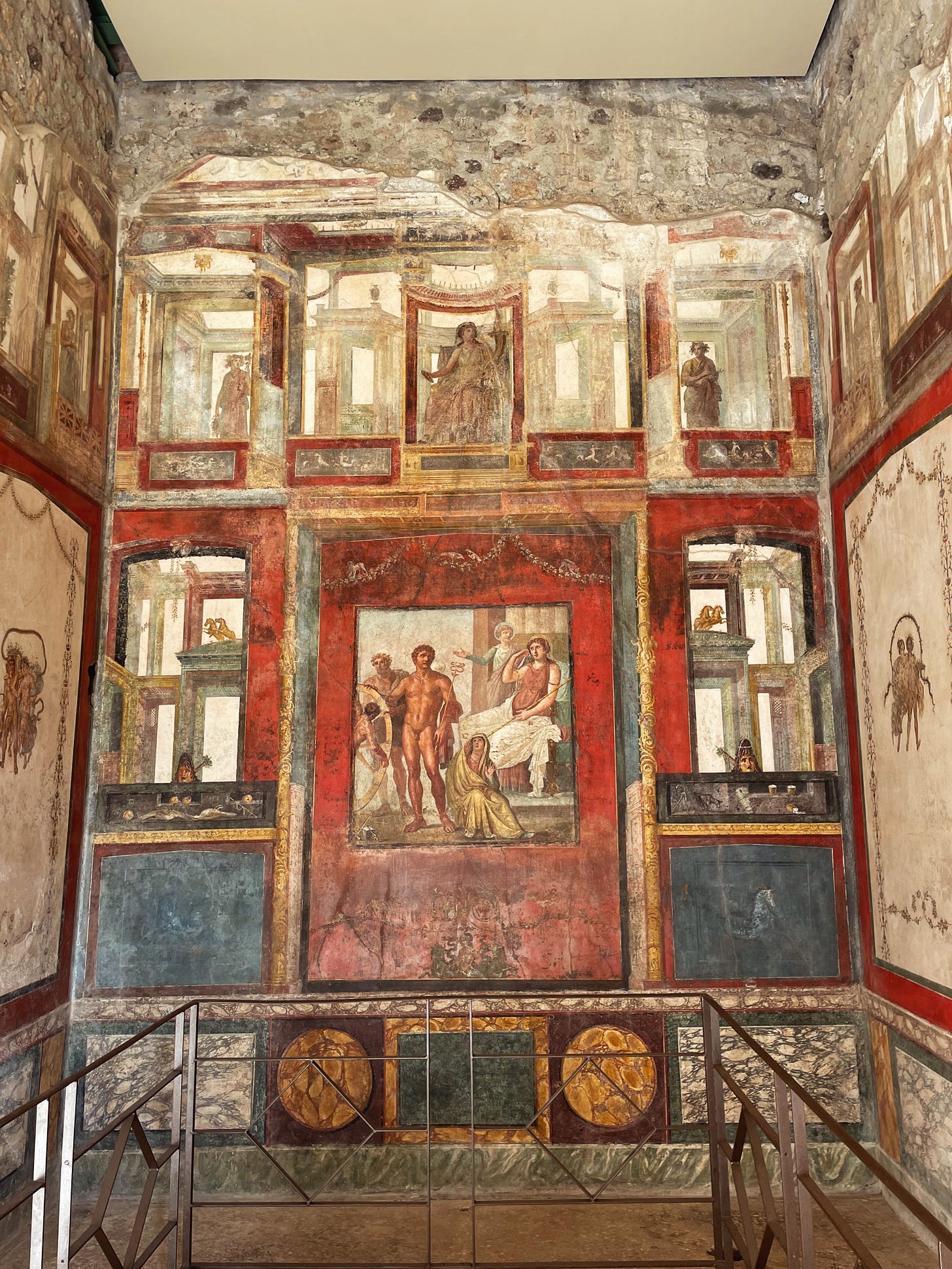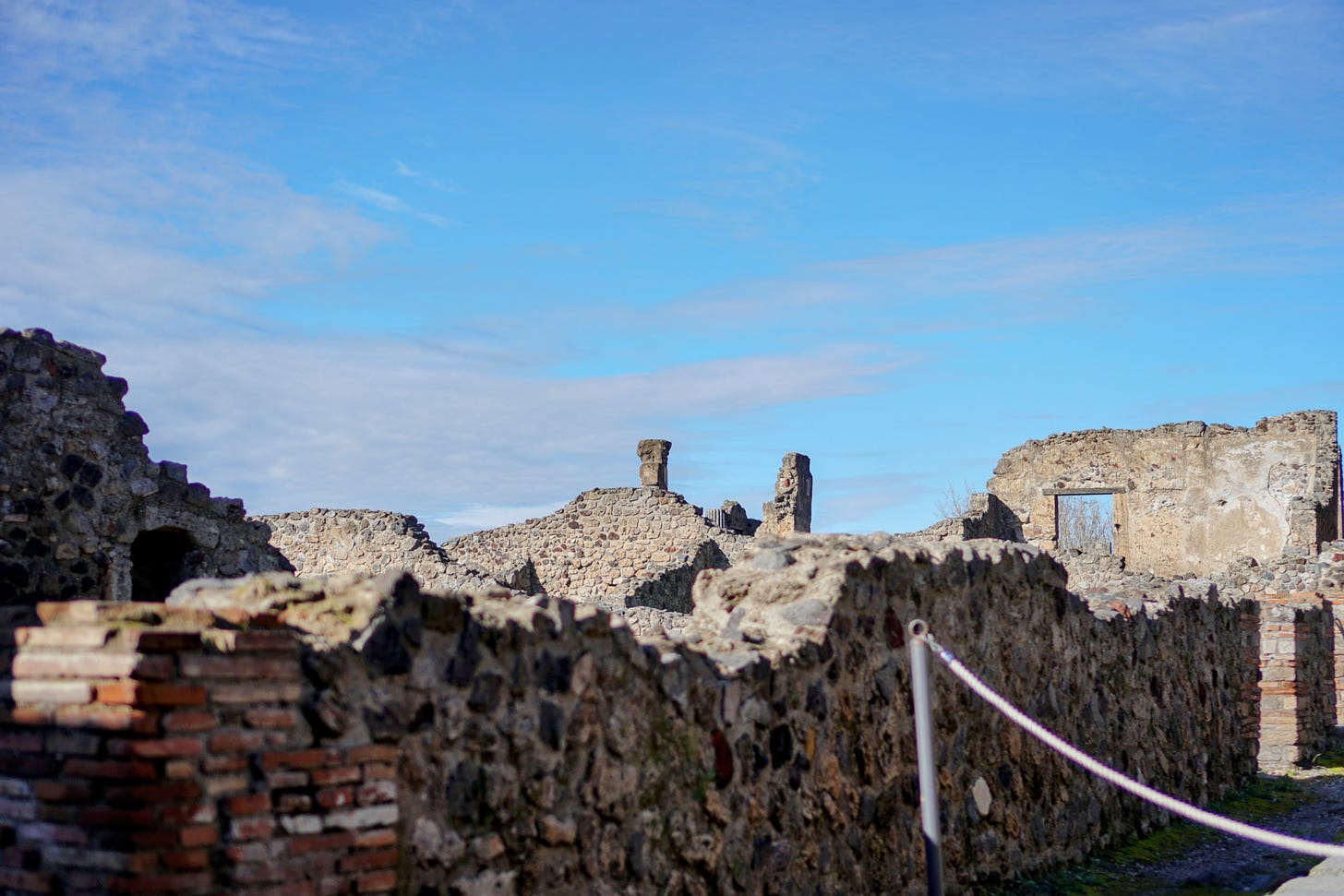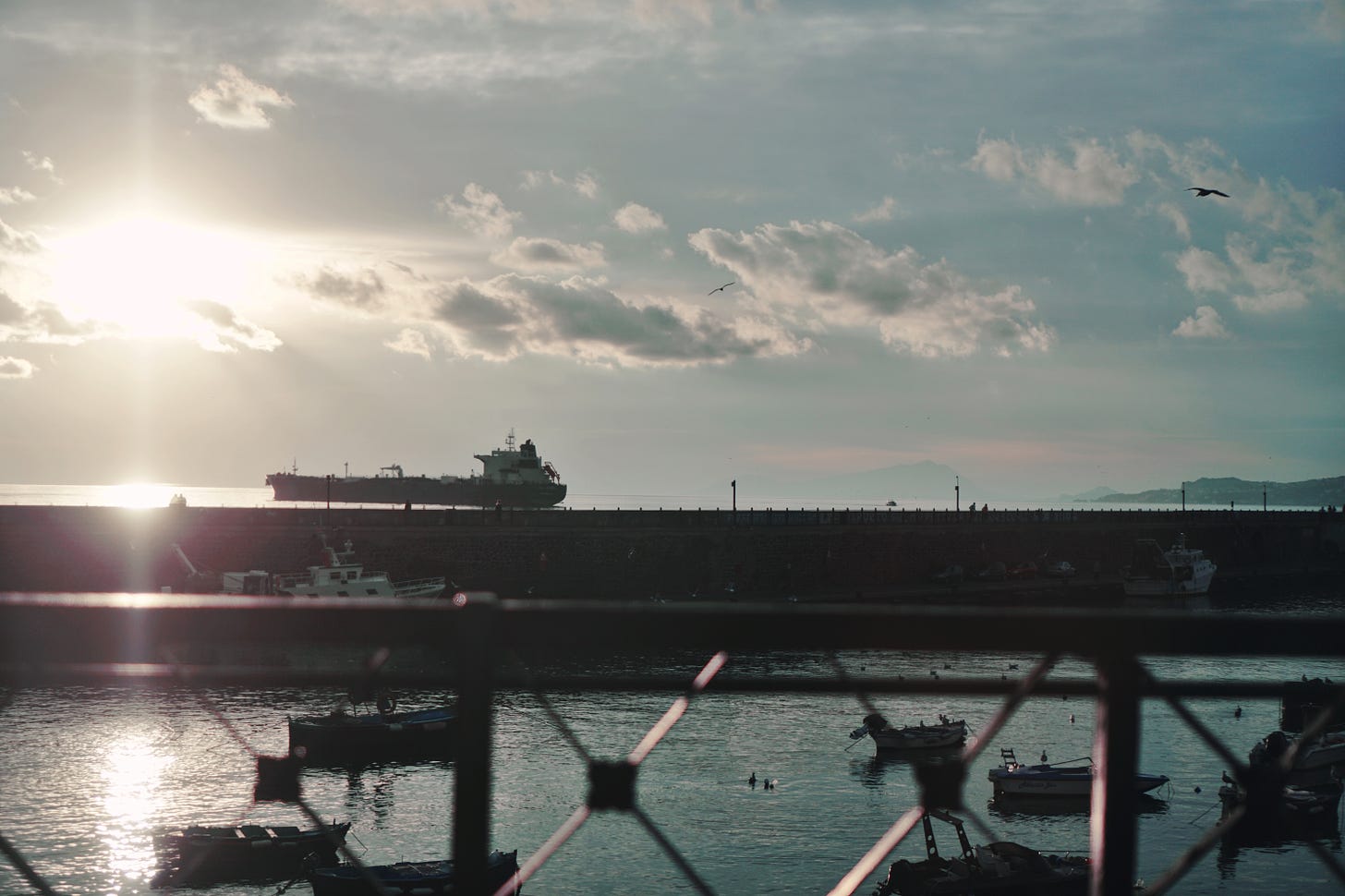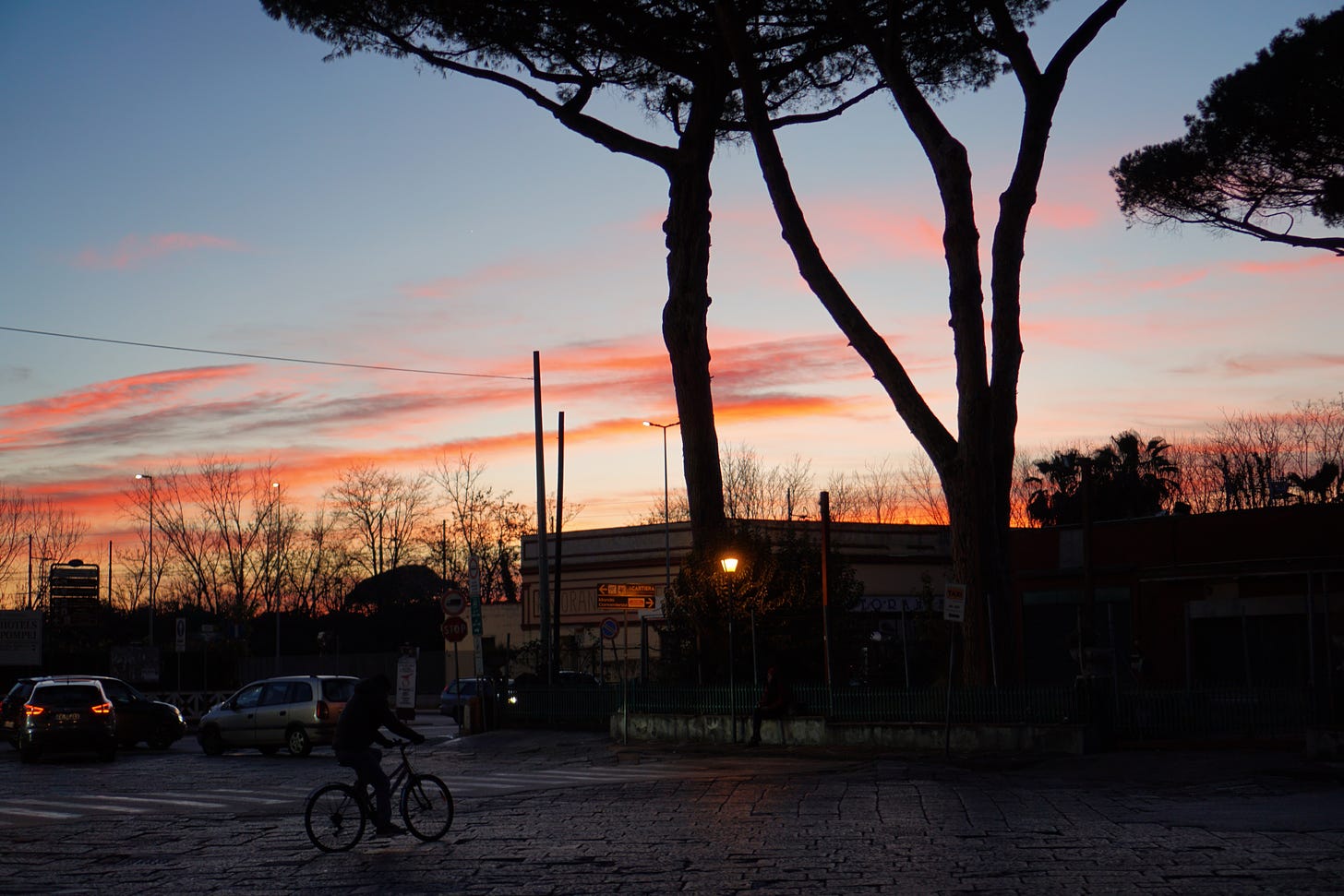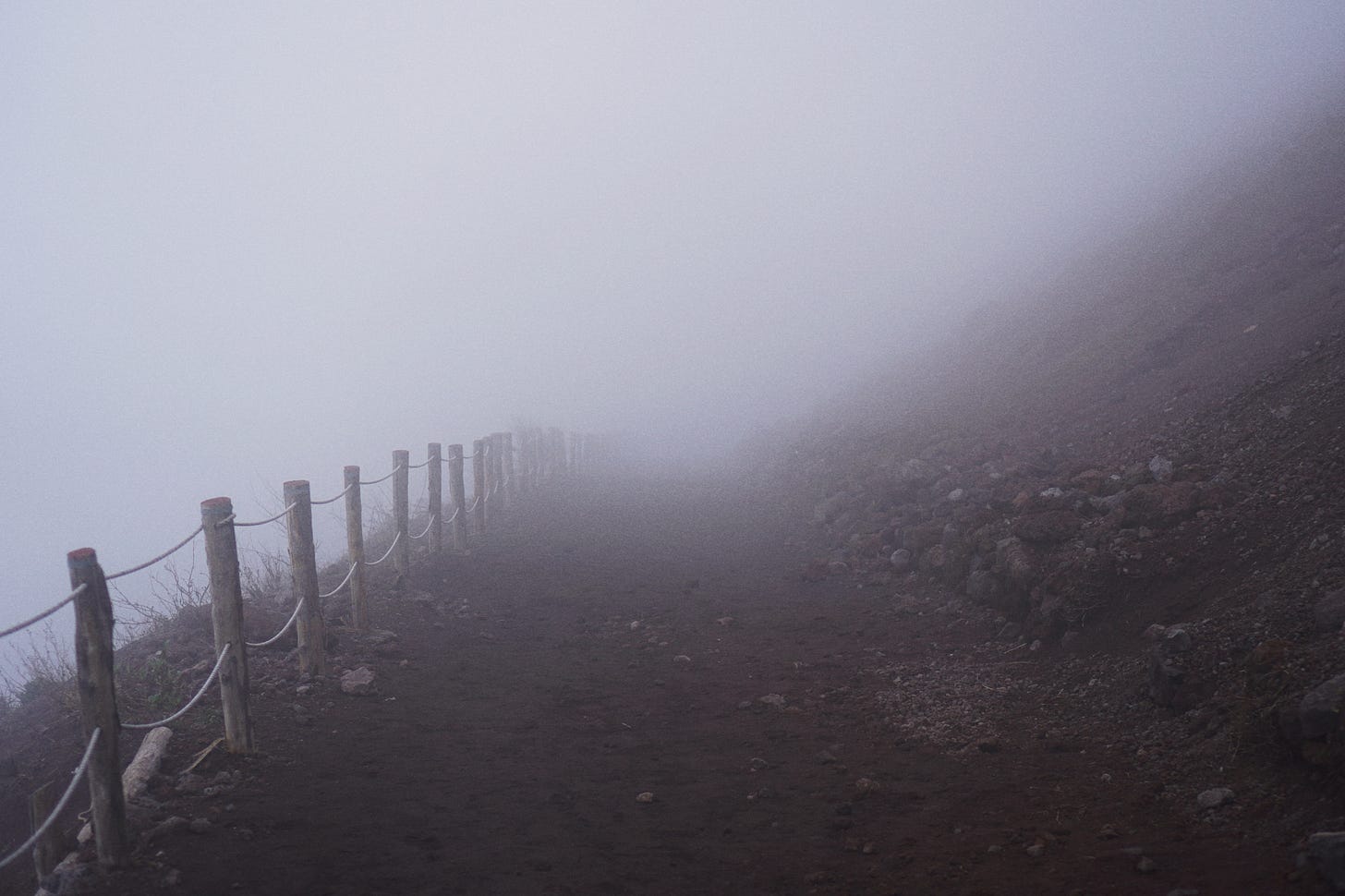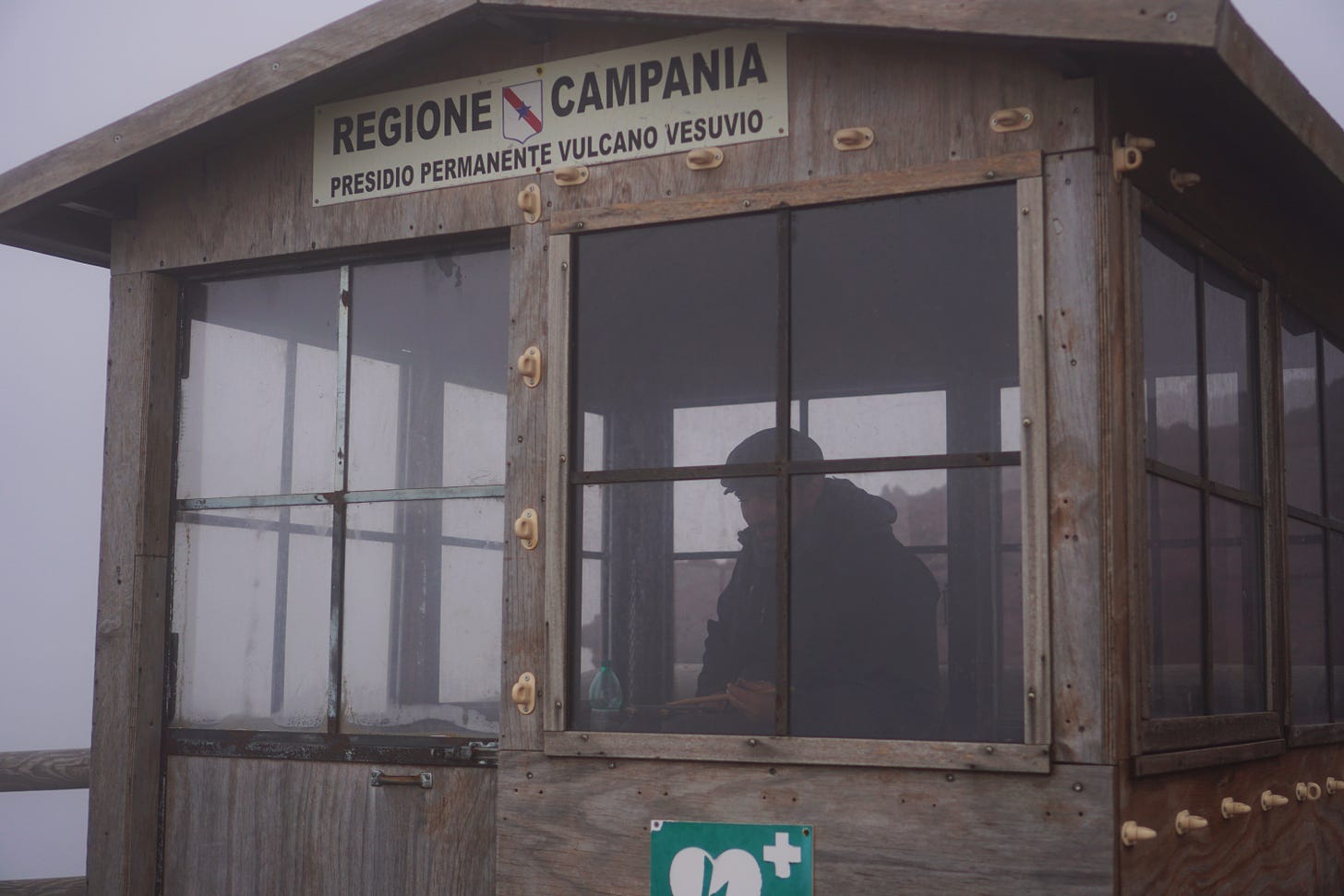Pompeii Travelogue
And life is just a series of self-imposed deadlines before the final deadline, right? Until then, we can try again.
I’ve always chased the feeling of smallness –– to stand amongst seemingly everlasting things, things that will outlive all of us, and to be reminded of just how insignificant and significant life could be at the same time. It’s a form of natural therapy I seek from time to time: to hike in the woods, to stare at old art with visible and time-capsuled brush strokes, and to feel transparent in streams of crowds in a big city. Being in Yellowstone was the first time I felt such a revelation of just how alive I am when plains of boundless scenery stretch out in the continuity of nature. I experienced that magical feeling again in January on a weekend solo trip to Pompeii. All my worries sank to the ground like a peaceful piece of dust: this shall pass, and that too. Life is only life when it gets better and worse by turns.
In the alleyways of Pompeii, things looked familiar.
I could almost feel the hustle and bustle of life in the 4th Century BC. Bread could still be baked in these brick ovens (suitable for pizza, too). Roads dressed in slabs of broken stones recalled footsteps scurrying from place to place. Sites of worship gathered like today’s churches and congregations. In ancient Rome, religion was a practice and not a belief system. Ritual-based, it was intended to maintain a good relationship with the gods and rarely indoctrinated personal salvation or morality. Is it fair to view their approach to religion as almost an act of humility that delegated the powerless and the unknown to a higher being? And people just focused on living.
One interesting fact: As the city of Rome expanded, refugees, runaways, and degenerates were all welcomed as immigrants. Even slaves in ancient Rome experienced similar rights as free people. Rome also prided its upward mobility, and slaves could gain emancipation through working, saving up, or negotiating with their hosts. This was evident in Casa dei Vetti –– a well-preserved property owned by a former slave in Pompeii. In his lifetime, he built a lavish house that displayed wealth and status.
Meandering past grass-covered houses, I imagined what life was like here. Perhaps humans have always wanted the same things and operated more or less similarly in a biological sense. We just embellish life with new trinkets now. Instead of water and wine, we now have lemonade, bubble tea, and Palomas. Yet the desire to quench thirst and send a little buzz to the head from time to time stays the same. People in Pompeii probably sweated over the same menial life decisions just like we do now –– raising kids, schooling, work, the pretty girl next door, what to eat for dinner, the sourdough starter looking a bit pink and odd…
It’s reassuring to see that only the collective is left behind, with occasional faces recognizable at critical junctures; and eventually, everyone, including the once-distinguished faces, becomes part of an idea of an epoch in the gushing artery of history.
And life is just a series of self-imposed deadlines before the final deadline, right? Until then, we can try again.
Does this kind of thinking simplify or nullify life?
Fortunately, we only get so many chances. I guess that’s a critical ingredient to give life meaning: finity.

